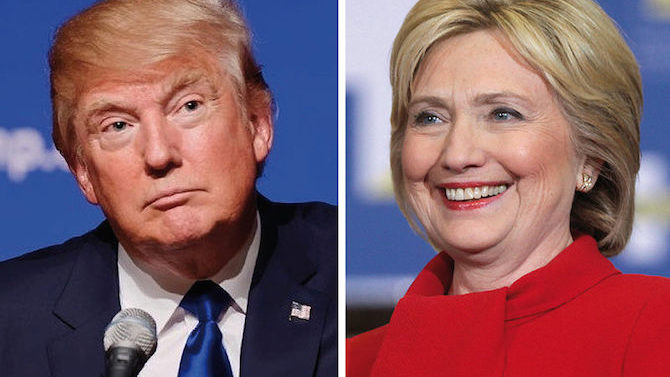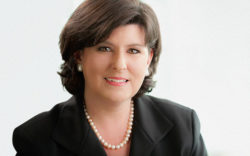It’s an old political truism that a presidential race doesn’t really start until after Labor Day. The conventional wisdom is that people aren’t paying much attention to politics until then, so you shouldn’t take the early polls too seriously.
This is one of those election years, however, where the old wisdom may no longer be applicable, thanks largely to the national emergence of Donald Trump. Because of Trump, people with just a slight interest in politics have been paying attention to this race for quite a while. That’s not necessarily a positive development for Trump, as the polls are showing, but there’s no question that he has dominated the media landscape ever since he entered the race 15 months ago.
A presidential election isn’t conducted nationally, of course. It is a combination of 50 separate state elections that determine who will get each state’s electoral college votes. When you look at the polling in the battleground states, Clinton is running strongly at this point in most of them.
Trump wanted to sweep the rust belt states through his opposition to international trade agreements, but Clinton has comfortable leads in Michigan, Wisconsin, Illinois and Pennsylvania. The race in Ohio is closer, but Clinton has a small lead there as well.
The real surprise in this election year is that Clinton, the Democrat, has the opportunity to shake off the stranglehold Republicans have held over the South for the past several elections. She is running so strongly in Virginia that her campaign decided to stop spending money on TV ads there. Clinton has smaller leads in Florida and North Carolina.
The shocker is that Clinton is even competitive, at least at this stage, in the deep-red states of Georgia and South Carolina. While there hasn’t been any polling data out of Georgia for several weeks, a cluster of polls in early August indicated that the state was essentially deadlocked between Trump and Clinton. Trump is in a better position in South Carolina, but even there you have at least one poll that showed the state was split between the two candidates. If those trends continue, the entire Atlantic Coast of Southern states could be in play for the Democratic Party.
Realistically, it’s more likely that Republican voters in Georgia and South Carolina will come home in the closing weeks of the race and tip those states back to Trump. Even so, the fact that we’re even having this discussion shows what a strange election cycle it’s been.
In most years, a candidate with the kind of polling advantage Clinton now has would be considered a sure shot for winning the election. It’s been pointed out by numerous sources that the candidate leading at this stage of the race has gone on to win every presidential election dating back to 1952.
That may not turn out to be the case this time around because of some X-factors that could have an impact on the final outcome. Trump has a real affection for Russian strongman Vladimir Putin, a feeling that is reciprocated on Putin’s part. Russia has some of the shrewdest computer hackers in the world, so who knows what kinds of embarrassing emails they might steal between now and election day?
This has also been a horrendous year for terrorist incidents, as the residents of Brussels, Nice and Orlando can attest. If there is a bombing or mass shooting on American soil in the weeks prior to Nov. 8, how much would that shake up the dynamics of the race?
On a less stressful level, there are also three debates scheduled that could potentially be game-changers. Given all of those factors, it’s too early to make any definitive predictions. I’d advise everyone to be sure they cast their ballot on Election Day.
Like what you just read? Support Flagpole by making a donation today. Every dollar you give helps fund our ongoing mission to provide Athens with quality, independent journalism.










